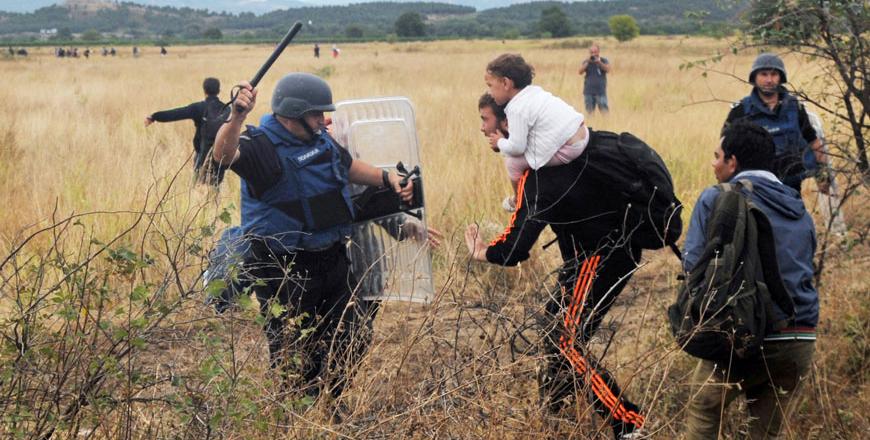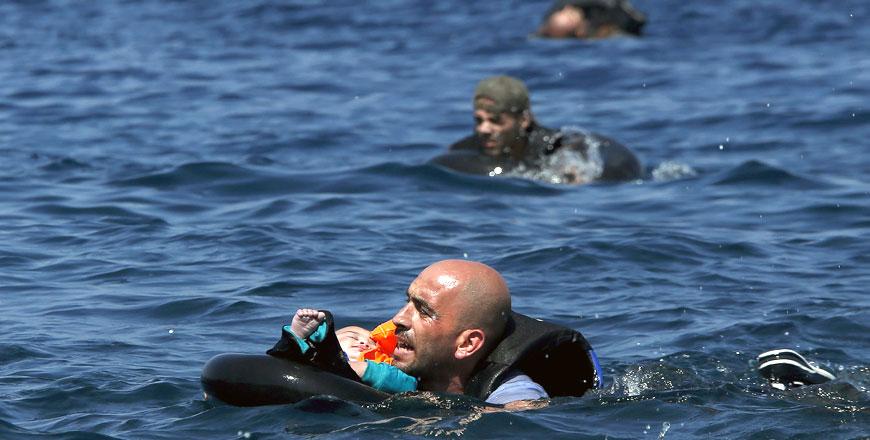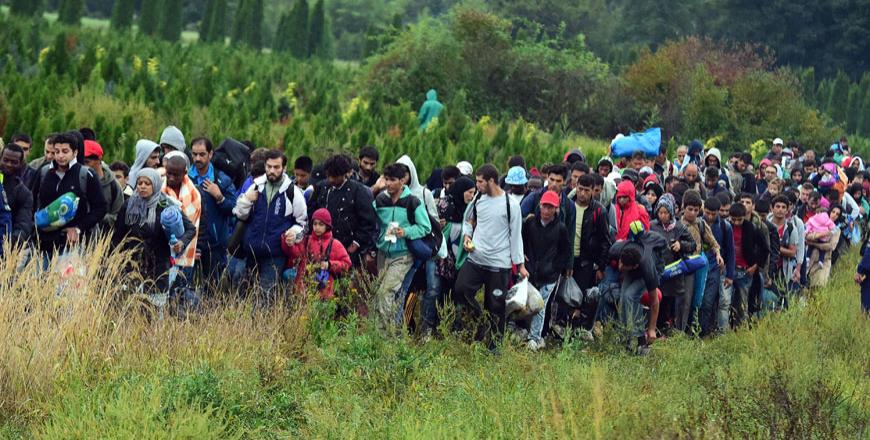You are here
Germany vows to fight xenophobia after attacks on refugee home
By Reuters - Aug 23,2015 - Last updated at Aug 23,2015

A migrant tries to pass a fence near the town of Idomeni, on the border between former Yugoslav Republic of Macedonia and Greece, on Saturday (AFP photo)
BERLIN — Germany's interior minister led calls on Sunday for a crackdown on right-wing militants and racists after a second night of scuffles between protesters and police outside a refugee shelter in an eastern German town near Dresden.
Just a day after 31 police officers were hurt in violent protests against the asylum seekers, a Reuters photographer on Saturday night saw some 200 mostly drunk militants in Heidenau throwing fireworks and bottles at police.
Some shouted "Heil Hitler".
Amid fears of a recurrence, police on Sunday started to set up a security zone around the shelter, an empty hardware store. Vice Chancellor Sigmar Gabriel will visit the town on Monday.
As Europe struggles with an influx of migrants fleeing war in countries such as Syria and Iraq, German politicians are worried about the financial and social effects on their country, the EU's biggest recipient of refugees.
Germany, which has relatively liberal asylum laws, expects the number of refugees to quadruple this year to 800,000. Chancellor Angela Merkel says it is the biggest issue the EU faces, tougher even than the Greek debt crisis.
Interior Minster Thomas de Maiziere condemned the attacks.
"At the same time as we see a wave of people wanting to help, we have a rise in hate, insults and violence against asylum seekers. That is obscene and unworthy of our country," de Maiziere told Bild am Sonntag newspaper.
"Anyone who acts like that faces the full force of the law."
Justice Minister Heiko Maas responded to the Heidenau riot by saying there was zero tolerance for xenophobia or racism.
Many politicians have warned about a rise in hostility towards foreigners and in the first half of the year alone, some 150 arson or other attacks were recorded on refugee shelters.
Some of Merkel's conservatives want to curb benefits for asylum seekers and for other EU states to take up more of the burden.
De Maiziere said the EU had to agree on a list of countries of 'safe origin' to make it easier to deport refugees, including nations trying to join the bloc and some African states.
More than one third of asylum seekers in Germany are from southeastern European countries such as Albania and Serbia.
Gabriel said the EU's passport-free Schengen zone could be at risk if the impression arose that only Sweden, Austria and Germany accept large numbers of refugees.
Related Articles
BERLIN/BRUSSELS — Germany re-imposed border controls on Sunday after Europe's most powerful nation acknowledged it could scarcely cope with
BRUSSELS/ LEIPZIG, Germany — Biitterly divided European leaders will seek to find a credible response to the continent's worst migration cri
Top-selling German tabloid Bild and 50 prominent Germans called on Tuesday for an end to what they see as rising xenophobia, a day after thousands of protesters in several German cities rallied against Muslim immigration.



















